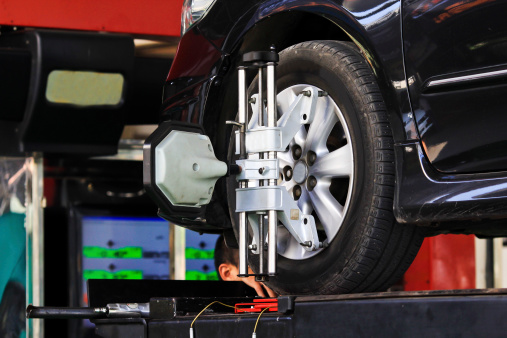April 19, 2023
The Importance Of Wheel Bearing Maintenance
Wheel bearings are an essential part of your vehicle’s suspension system. They are responsible for supporting the weight of your vehicle and allowing the wheels to rotate smoothly. Without properly maintained wheel bearings, your vehicle can become unsafe to drive, and you may experience a variety of issues such as vibration, uneven tire wear, and even complete wheel failure. Therefore, it is crucial to understand the importance of wheel bearing maintenance and how to properly maintain them.
One of the main reasons to maintain your wheel bearings is to prevent premature wear and tear. Over time, the bearings can become worn, and if left unchecked, they can fail, causing serious damage to your vehicle’s wheels and suspension system. Regular maintenance, including cleaning and lubricating the bearings, can help prevent this from happening.
Another reason to maintain your wheel bearings is to improve the overall performance of your vehicle. When the bearings are well-maintained, they will rotate smoothly and efficiently, which can improve your vehicle’s fuel economy, handling, and overall performance.
Proper maintenance of wheel bearings can also help you avoid costly repairs down the road. If you neglect your wheel bearings, they can fail, causing damage to your wheels, tires, and other components of your suspension system. Repairing or replacing these components can be expensive, so it is better to maintain your wheel bearings to avoid these costs.
In conclusion, regular maintenance of wheel bearings is critical to the safe and efficient operation of your vehicle. It is essential to follow the manufacturer’s recommended maintenance schedule and have your bearings inspected and serviced regularly by a qualified mechanic. By taking care of your wheel bearings, you can ensure that your vehicle runs smoothly and safely for years to come.

Do wheel bearings need maintenance?
Proper maintenance of wheel bearings includes cleaning and lubricating them, inspecting them for wear and damage, and replacing them when necessary. The manufacturer’s recommended maintenance schedule should be followed, and a qualified mechanic should be consulted to perform any necessary maintenance or repairs.
Neglecting the maintenance of your wheel bearings can lead to issues such as uneven tire wear, vibration, and even complete wheel failure, which can be dangerous and expensive to repair. Therefore, it is important to prioritize the maintenance of your wheel bearings to ensure the safety and longevity of your vehicle.
How do you maintain wheel bearings?
- Consult your vehicle’s owner manual to determine the manufacturer’s recommended maintenance schedule for your specific make and model.
- Jack up your vehicle and remove the wheels to access the wheel bearings.
- Clean the wheel bearings and surrounding area using a solvent or brake cleaner to remove any dirt, debris, or old lubricant.
- Inspect the bearings for any signs of wear, damage, or corrosion. If the bearings are damaged or excessively worn, they should be replaced.
- Lubricate the bearings with a high-quality wheel bearing grease. Apply the grease to the bearing using a bearing packer tool or by hand. Ensure that the grease fills all of the spaces between the bearing’s rollers.
- Reinstall the wheel, and repeat the process for each wheel on your vehicle.
- Check for any signs of wheel bearing issues such as unusual noises, vibration, or uneven tire wear. If you notice any issues, take your vehicle to a qualified mechanic to have it inspected.
Regular maintenance of wheel bearings can help prevent premature wear and damage, ensure smooth and efficient wheel rotation, and avoid costly repairs down the road. It is recommended to have your wheel bearings inspected and serviced by a qualified mechanic at least once a year or as per the manufacturer’s recommended maintenance schedule.

How do I know if my wheel bearings are bad?
- Unusual noises: If you hear a grinding, humming, or rumbling noise coming from your vehicle’s wheels while driving, it could be a sign of worn or damaged wheel bearings.
- Vibration: A vibration or wobbling sensation in the steering wheel or vehicle could be a sign of bad wheel bearings.
- Uneven tire wear: When wheel bearings are bad, they can cause uneven tire wear, which can be seen as bald spots or worn areas on the tire tread.
- Loose or wobbly wheel: A wheel that feels loose or wobbles when you drive could be a sign of a damaged wheel bearing.
- ABS warning light: If your vehicle’s ABS warning light comes on, it could be a sign of a damaged or worn wheel bearing.
If you experience any of these symptoms, it is recommended to have your vehicle inspected by a qualified mechanic as soon as possible. Neglecting bad wheel bearings can cause serious damage to your vehicle’s wheels and suspension system, and in extreme cases, can result in a dangerous driving situation.
